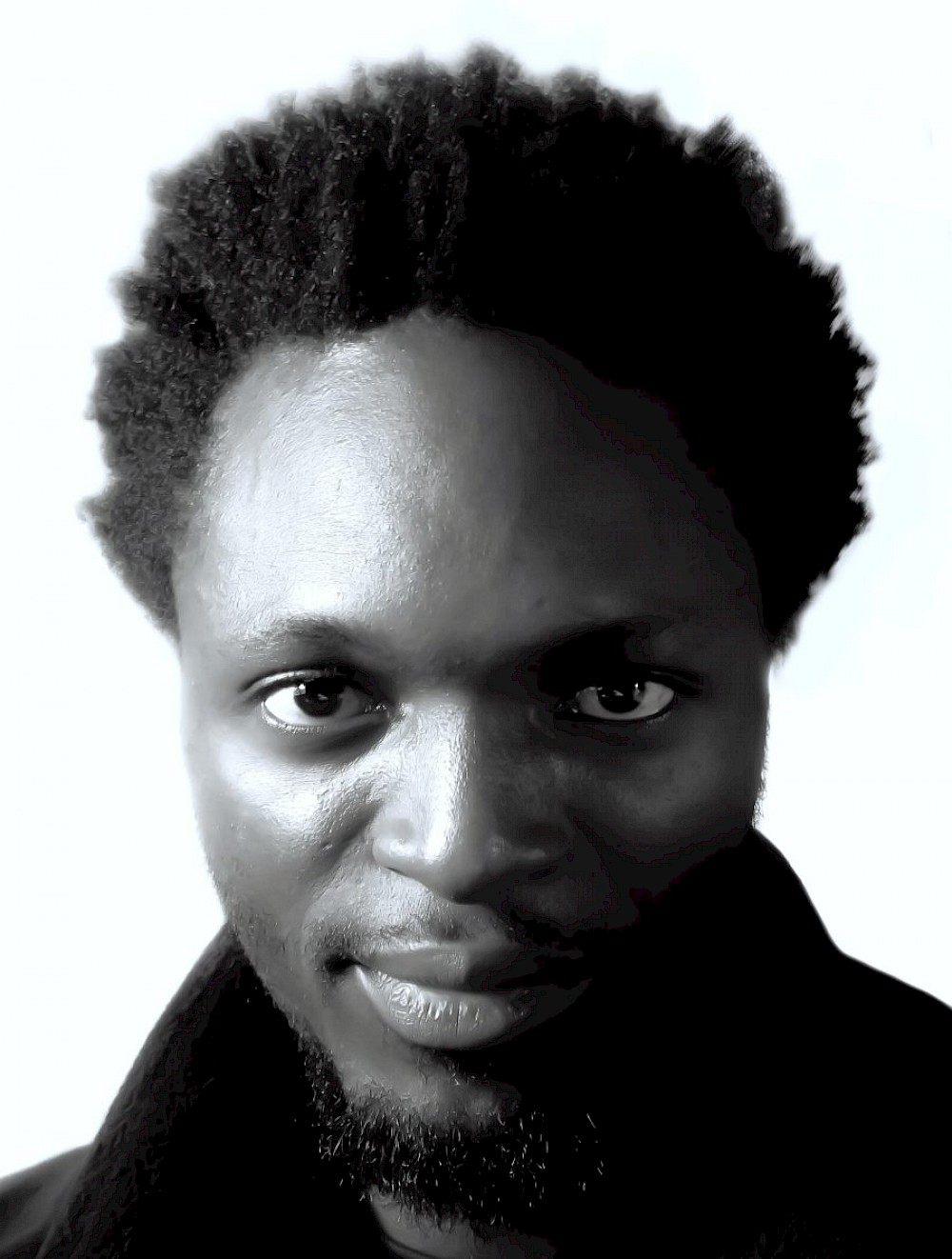Sinzo Aanza is a Congolese artist whose work focuses on the radicality of fiction. In 2007, Luhindi K. Sinzomene created Sinzo Aanza, a radical fiction which he made bear the responsibility for the interactions between his creations, first literary and then visually, and the equally frictional social frameworks in which encounters, discussions, and the projections around all the other inventions developed by men to frame life, its understanding and its organization, become possible.
His pen, both poetic and irreverent, probes the political situation of the Democratic Republic of Congo, as well as the constructed image of this country which "has always belonged to investors, preferably foreigners". The exploitation of natural resources, the representation of national identities and their excesses, or the construction of the image of the Congo since the colonial era are themes that nourish both his visual and literary works.
In 2015, he published “Genealogy of a banality”, a novel in which two discourses were confronted, one official, the other popular and intimated around the way in which people are recruited into a certain idea of the Congo and its scandalous riches. In 2017, he was in residence at WIELS in Brussels, where he designed the first part of “Projet d’assassination contre l’image?”, in which he tackled the question of Congolese religious syncretism. During his residency in 2019 at the Museum Rietberg, he produced the second act of this trilogy of installations for which he critically examines the legacy of ethnologist Hans Himmelheber and the collections he bequeathed to the museum. “It is as if a medieval European peasant had taken a Catholic monstrance from a church containing a Eucharist to sell it to an Arab or Chinese traveler.”
Sinzo Aanza (born in 1990 in Goma, DR Congo) lives and works in Kinshasa in DR Congo. He has exhibited at WIELS, Brussels, at the Rencontres de la Photographie, Arles – where he was nominated in 2018 for the New Discovery Prize – at the Rietberg Museum in Zurich, at the Lubumbashi Biennale and at the Cité de l'architecture & du patrimoine, Paris. In 2020-2021, he was the artistic director of the second edition of the Yango Biennale which was held in Kinshasa.
